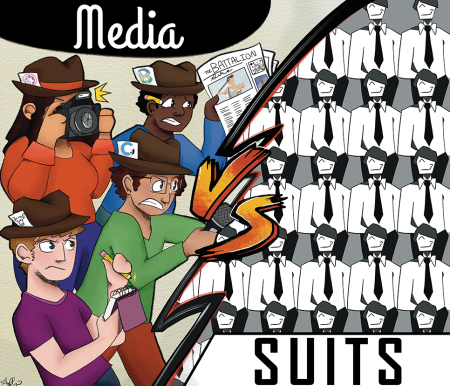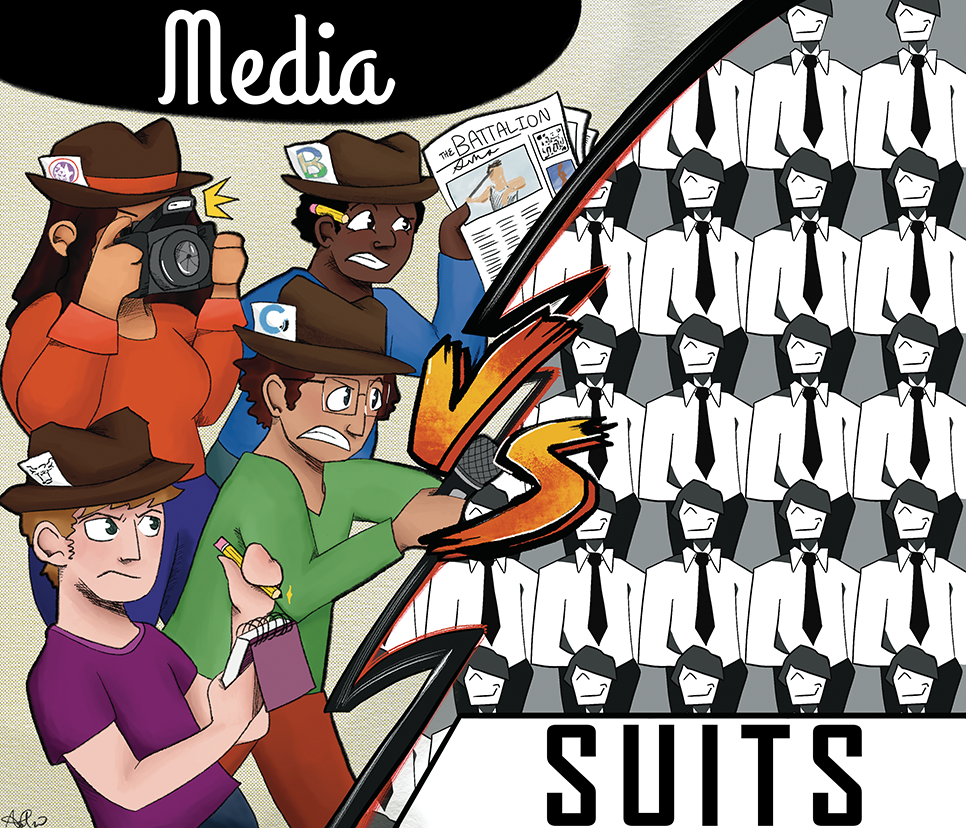
Alex Hoben/The Collegian
Freedom of the press is crucial in upholding any democracy that would like to stay a democracy. Therefore, it must be fought for at any turn, no matter how small it seems.
Earlier this month, the Texas A&M student publication The Battalion began fighting for that very right with A&M’s administration. A decision was made on the pretext that it will benefit students and help them focus on digital media and not print.
A&M’s administration has given The Battalion the “privilege” to continue its print edition until this spring semester. After that, it still plans to shut down its print edition and transition to digital. According to The Battalion, doing this will remove the publication’s largest revenue source.
This decision was made without the input of The Battalion’s staff, and the news was given at the last possible moment.
There has been massive coverage from numerous outlets and support from other college newspapers and A&M’s student body. There was also a protest during a board of regents meeting and a hashtag titled #savethebatt. It’s safe to say people are against the decision to stop printing The Battalion, including us.
This has been a great way to kill morale, A&M. How does A&M expect to attract students interested in journalism if it undermines the department at every turn?
While it is true that journalism is turning a new leaf, print media is still vital for the development of students pursuing a degree in journalism.
Getting into journalism tends to be more about a person’s experience rather than just the degree itself.
Being employed by a print newspaper is an excellent way to gain that experience. It also teaches students to work with tight deadlines and learn the writing process behind news reporting.
In this digital age, practically anyone can cover the news and write about it for a blog or social media account, but often, those dissolve into confirming already established beliefs and usually aren’t taken seriously by the job market. Working for a print newspaper demands a higher standard from the student and gets them out of their comfort zone.
It teaches them how to confront their bias and fairly report the facts and the other side of an issue.
Also, it allows them to work closely with the production team to craft something they can be proud of each week. This is something that can’t be replaced.
College newspaper is the pipeline to a real-world job. Taking the print experience away from the students is doing them a disservice and will put them behind in this competitive profession.
A&M can’t hide behind a lousy excuse because it seems like this is an attempt to quiet the student body. The new regime is testing how far it could go.
This is definitely a slippery slope for The Battalion. If the administration is allowed to decide the fate of the publication without a real reason, what would stop it from turning The Battalion into a PR machine?
The administration potentially has the power to pick and choose what type of content goes out.
How does the administration expect to bring in quality students? It’s going to potentially control what will be put out and put its students at a disadvantage by not allowing them to sharpen the skills needed for the real world.
If A&M President Kathy Banks’ goal was to kill journalism at A&M, she’s going in the right direction.
“With the return of the degree and The Battalion returning to a university department — combined with our new facilities and an innovative examination of the future of journalism at A&M — I believe we will elevate the profession and aid in restoring trust in the news media,” Banks said in a statement.
If that is the case, Banks, you must revert your decision and allow The Battalion to continue to print if you want a strong journalism program for your university.

